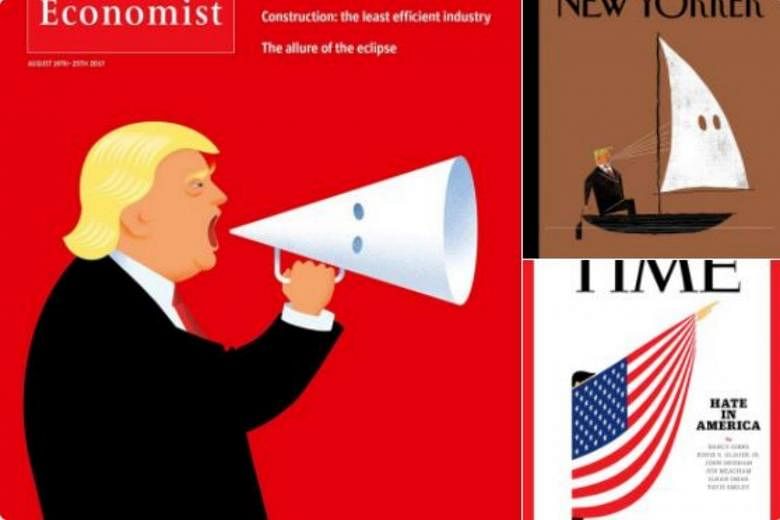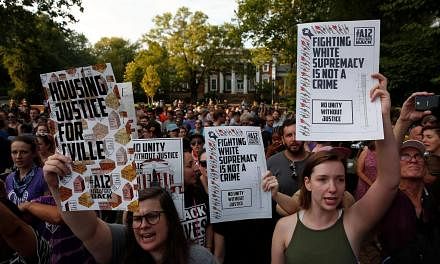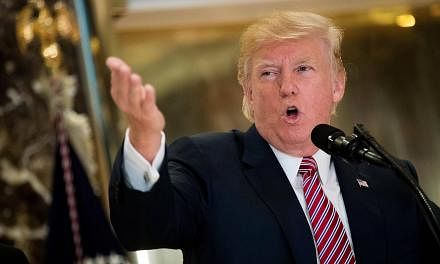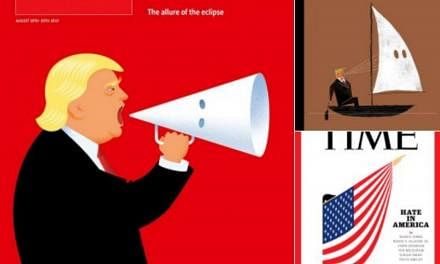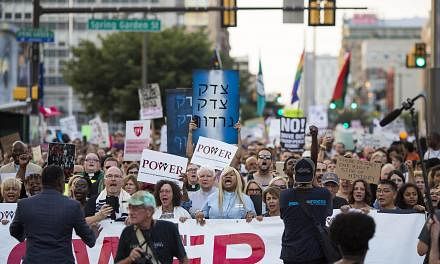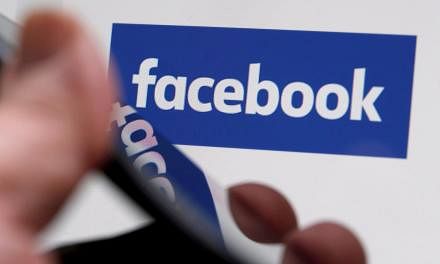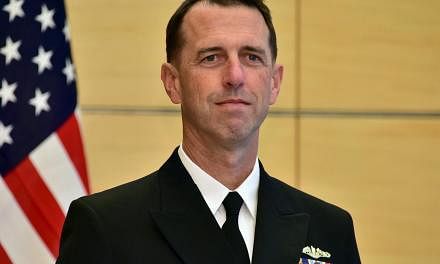WASHINGTON - Three highly regarded publications have criticised US President Donald Trump's defence of white supremacists over the Charlottesville violence in their latest issues.
The New Yorker and The Economist have illustrations of Trump on their cover: The New Yorker shows him in a boat blowing wind into a sail that is shaped like the hood of white supremacist group Ku Klux Klan (KKK), while The Economist shows him blowing wind into a KKK megaphone.
Time magazine did not have Trump on the cover but it showed a person in black boots and draped in an American flag giving the Nazi salute.
In an editorial titled "Donald Trump has no grasp of what it means to be president", The Economist said Trump is "politically inept, morally barren and temperamentally unfit for office".
While the editorial said Trump was not himself a white supremacist, it accused him of bungling "the simplest of political tests: finding a way to condemn Nazis." This earned him the endorsement of David Duke, the former grand wizard of KKK, said the editorial.
"The extreme right will stage more protests across America. Mr Trump has complicated the task of containing their marches and keeping the peace. The harm will spill over into the rest of his agenda, too,'' it added.
"Mr Trump's seemingly heartfelt defence of those marching to defend Confederate statues spoke to the degree to which white grievance and angry, sour nostalgia is part of his world view."
The US president triggered an outcry not only within the United States but also from some American allies after his comments on the violence in Charlottesville, Virginia. White supremacists, seeking to protest against the removal of a statue of Confederate general Robert E. Lee in a park, clashed with counterprotesters last Saturday (Aug 12), resulting in the death of one woman and at least 19 injured.
Trump said both sides were to blame for the violence and there were "very fine people" on both sides, including among the neo-Nazi and white-supremacist groups. He also accused what he called "alt-left" protesters of charging at the neo-Nazi groups with clubs.
In The New Yorker, an article titled "Donald Trump's Crisis of Legitimacy" said "even assuming that Trump will survive this latest horror show, as he has survived many previous ones, his Presidency will be further diminished and tarnished."
"Outside the arena of national security, the Presidency is a weak office; to get anything substantial done, the person in the Oval Office has to put together coalitions, bringing along powerful people and interest groups. As the healthcare fiasco demonstrated, Trump wasn't very good at that stuff to begin with- forgive the understatement- and he has just greatly compounded his difficulties,'' it said.
"By dint of his pigheadedness, or prejudice, or both, he has moved onto political ground that makes it virtually impossible for other people in influential positions, such as CEOs, or the heads of other organisations, or senior government officials, or celebrities, or even his own Cabinet members, to stand with him, or even to be seen to coöperate with him.
" That is what happens when a President throws away his own legitimacy."
In an article headlined "Will the Nation Succeed After Charlottesville Where Donald Trump Failed?", the Time magazine said: "During his campaign, Trump engaged and inspired millions of voters who had given up on government and were desperate for a new vision, a new voice. Their needs are real and urgent, and have been largely ignored as the President reduced the office to a vanity plate. He has shown how little loyalty he feels to friends and allies who honour some principle higher than his self-interest.
"In the aftermath of Charlottesville, we saw the reverse: we saw his reluctance to turn away from people who admire him, claim him, even if they do so in the name of beliefs that Americans have died fighting to defeat. There will be more marches, more clashes and, if the white supremacist leaders are right, more lives lost before this latest battle for the nation's soul resolves,'' it said.
"But it is a historic shame and sorrow that so few Americans can come to that struggle with the faith that their President is on their side."
